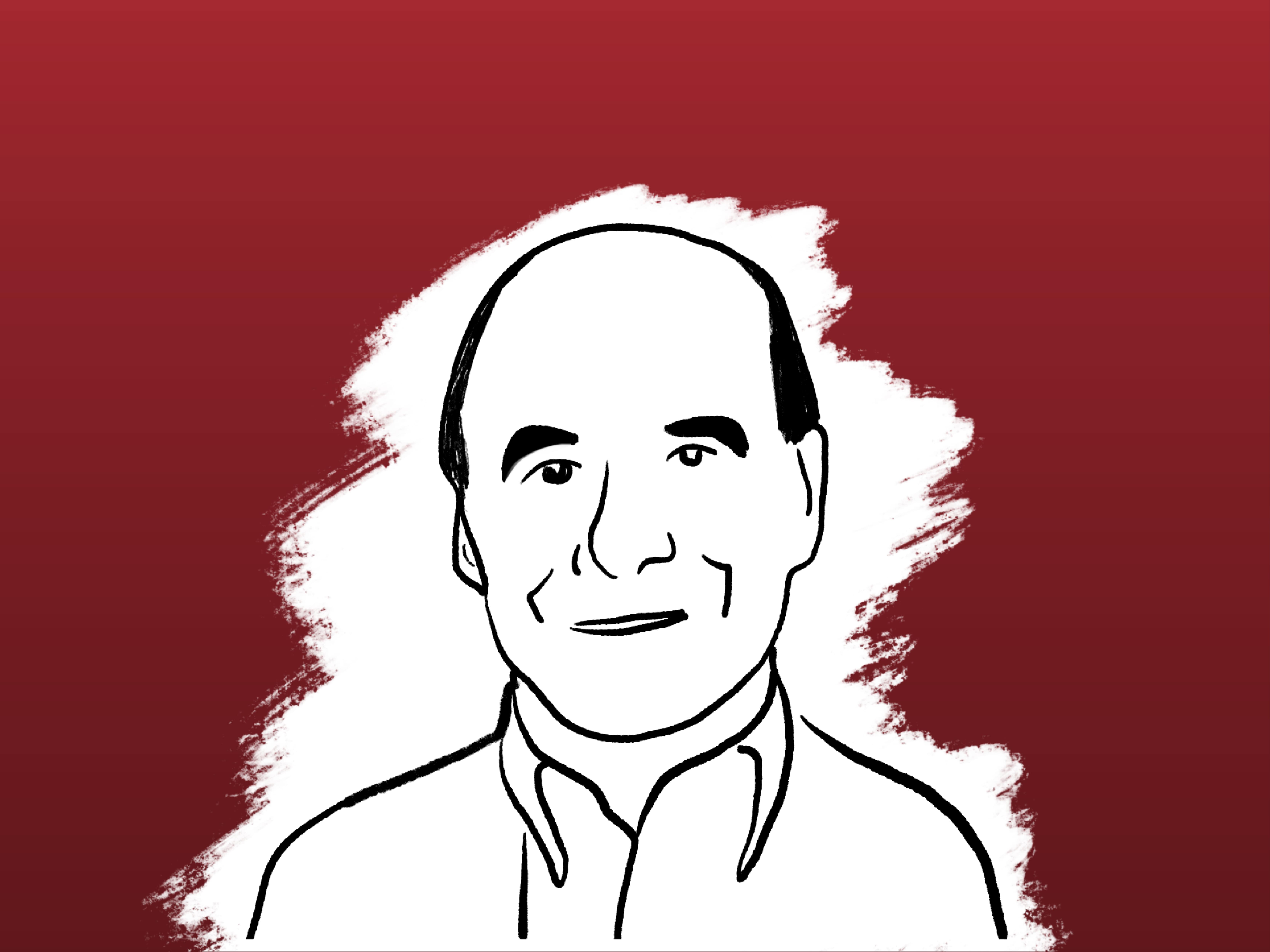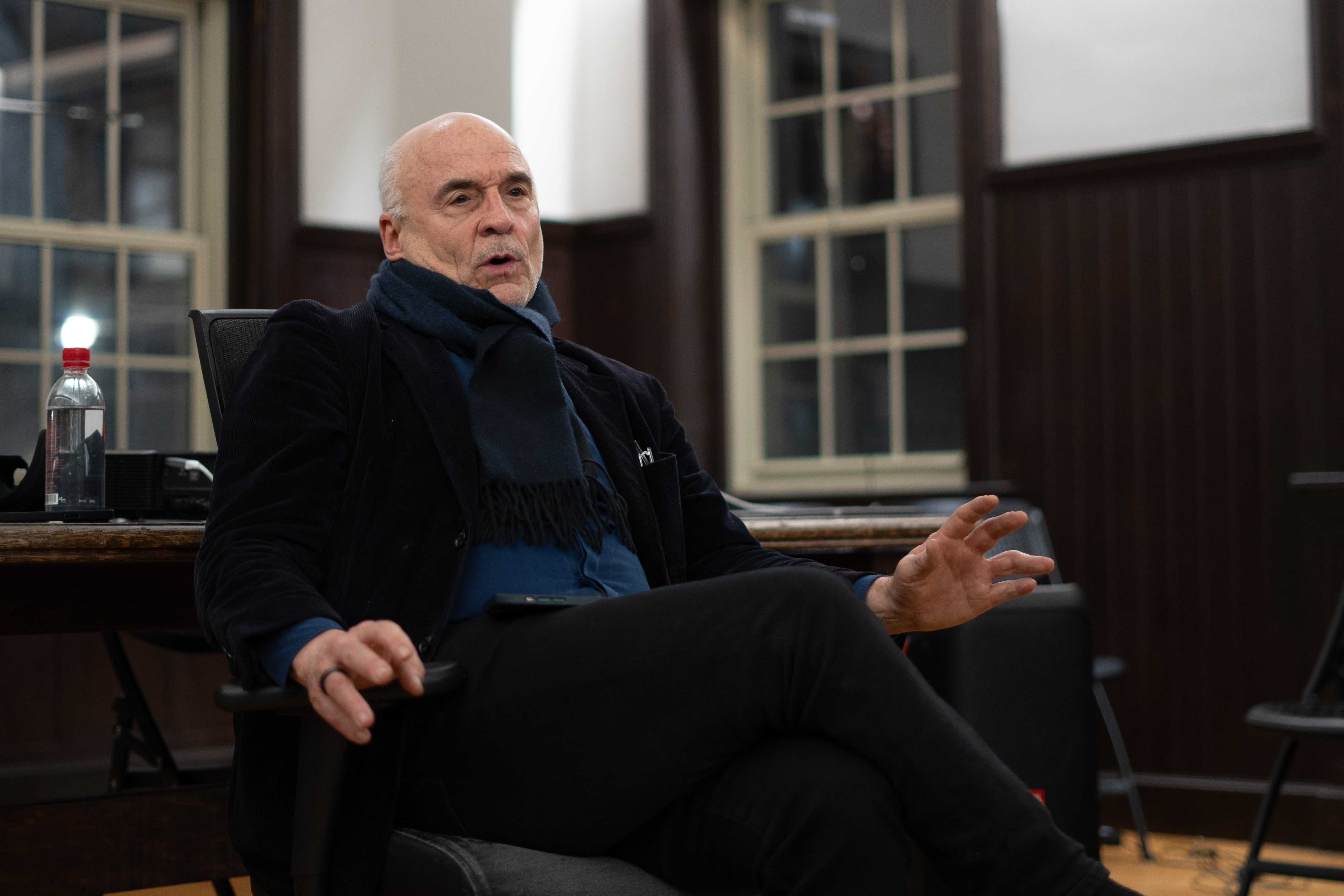After the turmoil of the last several months, do you think the Board of Overseers should step in to reassure donors? If so, how?
Donors are, of course, an important component of Harvard’s endowment and financial aid program. I think there is an important role for the Board of Overseers to communicate with and inform concerned alumni and donors and everyone else, especially in the current time of turmoil, and convey Harvard’s perspective.
Overseers and alumni leaders play an important external role and need to be in an even better position to serve as communicators and ambassadors to the world. Speaking as a sitting Overseer, I feel the Overseers and Harvard’s most dedicated alumni leaders were not as informed as they could have been recently to provide the kind of leadership and guidance that the broader Harvard community and the world needed.
Do you think the current Board of Overseers election process is fair? Would you support lowering the write-in candidate signature threshold?
There are two elements to this question: First, of course, the Harvard Alumni Association nominating process itself; second, the write-in process.
I know one petition candidate well and certainly would have welcomed that candidate around the table. The fact is the voting process was felt by some not to be user-friendly and even complicated. I would imagine that the HAA will take a close look at this going forward.
Regarding the vote threshold for write-in candidates, I would support lowering the threshold, but, again, that is a balance. There needs to be a high enough number that the write-in candidates have a credible level of support, but not so high that it is insurmountable. While no threshold is perfect, it would make sense to review this threshold and the voting process.
As Harvard now prepares to select Claudine Gay’s permanent successor, would you like to see any changes relative to the search process that selected Gay?
I was, of course, not involved in the selection process for Claudine Gay, but for Harvard’s next permanent president, I feel that the process could certainly be significantly more transparent, communicative, and broader, including considering potential candidates outside of Harvard and the U.S.
Whenever the process begins for Harvard’s permanent president, I feel that it is important that alumni and others feel the process has been very detailed, very deliberate and has covered all possible areas of investigation. I also think there is a role for earlier and broader communication and discussion about possible candidates. This could include focused and open discussion with groups beyond the Harvard Corporation, including the Overseers and other alumni groups.
Recently, Harvard has grappled with campus antisemitism, Islamophobia, and anti-Palestinian racism. In light of these issues, what is your perspective on the current state of campus culture?
To be very clear, I am absolutely disgusted by all forms of hate and there is no place at Harvard for this. Right now, Harvard does not have the atmosphere that students and professors deserve in order to promote learning, open communication, and academic work, and, in a broader sense, to pursue Veritas.
My sense is that there are very positive steps already underway to improve dialogue and promote understanding of different points of view. Harvard’s senior administration can help encourage the values of listening and communication throughout the University more broadly, including through coaching professors, teaching fellows, and others around how to balance and defuse violent discussions in class.
Do you support Harvard committing to institutional neutrality? In what areas should Harvard remain neutral?
Many people pointed to the Chicago principles as an example that Harvard should follow. I believe that some form of institutional neutrality should be studied and applied. Ultimately, we need to identify and implement the most appropriate form for Harvard, because, of course, each institution has its own specifics regarding history and environment.
It is certainly worth discussing whether there are very rare instances where institutional neutrality may potentially require an exception. It’s hard to say what, if anything might be an exception but matters directly impacting Harvard could be considered, or, for example, if Putin used a nuclear weapon — something that almost nobody would disagree with and which would set a dangerous precedent for humanity.
The University of Chicago, perhaps the most high-profile school to follow a policy of institutional neutrality, has cited that policy to reject calls from student activists to divest from certain financial interests, including in fossil fuels. Do you believe a policy of institutional neutrality should extend to investment decisions?
I do not believe that a policy of institutional neutrality necessarily exempts an institution from examining the ethics and long-term implications of its investments. But there are many shades and nuances to this situation. For example, if Harvard invests directly in an oil field, this may well be different than investing in a fund which has many investments, including in fossil fuels. I can understand the implications of investments in certain areas but I do not believe this necessarily indicates an institution is taking a position away from neutrality.
How can Harvard respond to attacks against its credibility, or the credibility of higher education more broadly, if it is to be institutionally neutral?
I believe that Harvard can respond robustly to attacks against its credibility or to that of higher education more broadly, particularly against things that impact Harvard and its community directly, without compromising institutional neutrality. For example, Harvard can stay neutral, but if it is attacked by outside groups with political agendas, it is entirely appropriate for Harvard to clarify its position and why it is doing something in one area or another.
I would make a separate observation, which is that communication is very important and Harvard certainly could have been more on the front foot and proactive in the recent crisis and before. In general, Harvard has an obligation to itself and its community not just to focus inward or hunker down, but to push back and defend its position, especially if the accusations do not correspond with reality.
As I’m sure you know, Harvard will soon complete its first admissions cycle following the Supreme Court’s landmark decision curtailing the use of race in college admissions. As the University looks to maintain diversity at the College, do you support Harvard ending preferences for legacies and the children of donors?
Yes.
Can you elaborate on that?
I believe it is essential in light of the Supreme Court’s decision regarding admissions that Harvard maintains the extraordinary diversity at the College, which all of us have benefited from in broadening our perspective, outlook, horizons, and understanding. The most qualified candidates from around the world should be evaluated and given the opportunity to study at Harvard, regardless of any Harvard relationship.
The past decade has seen a number of allegations of serious misconduct against tenured Harvard professors, ranging from repeated sexual harassment to falsification of data and other research misconduct. Still, to date, there are no known cases of Harvard revoking a professor’s tenure. In what cases, if any, do you believe revoking tenure is justified?
The question of revoking tenure for unacceptable behavior goes to the heart of the tenure process. I believe revocation is justified for a variety of extreme and unacceptable behaviors including harassment, all forms of discrimination, negative treatment based on background, religion, gender, identity, and other areas, and of course data falsification such as the case at Stanford. These could all be grounds for revoking tenure, but as with anything, people deserve the presumption of innocence, a hearing, due process, and the right to defend themselves
Do you support the creation of an Ethnic Studies department?
An Ethnic Studies department can, of course, have an important role at Harvard, as it does elsewhere, and I believe close consideration and study should be given to establishing one.
How it would sit alongside our outstanding departments in many areas is an important question. For example, coordination with the extraordinary work of Professor Henry Louis Gates, Jr. in creating what is probably the leading African and African-American Studies department in the world and other outstanding regional and cultural studies areas at Harvard, including Southeast Asia, East Asia, the Middle East, Latin America, and many other areas would need to be examined.
But there are many areas where ethnic studies could certainly explore new ground and sit comfortably adjacent or as a joint venture with the existing areas mentioned earlier. As a few issues, this could include questions of power dynamics, equality, the impact on society, the immigrant experience broadly defined, and many other areas in which Harvard has incredible scholarship. But, to summarize, the time has come to seriously explore how an Ethnic Studies department could successfully contribute to Harvard and its broader community.



